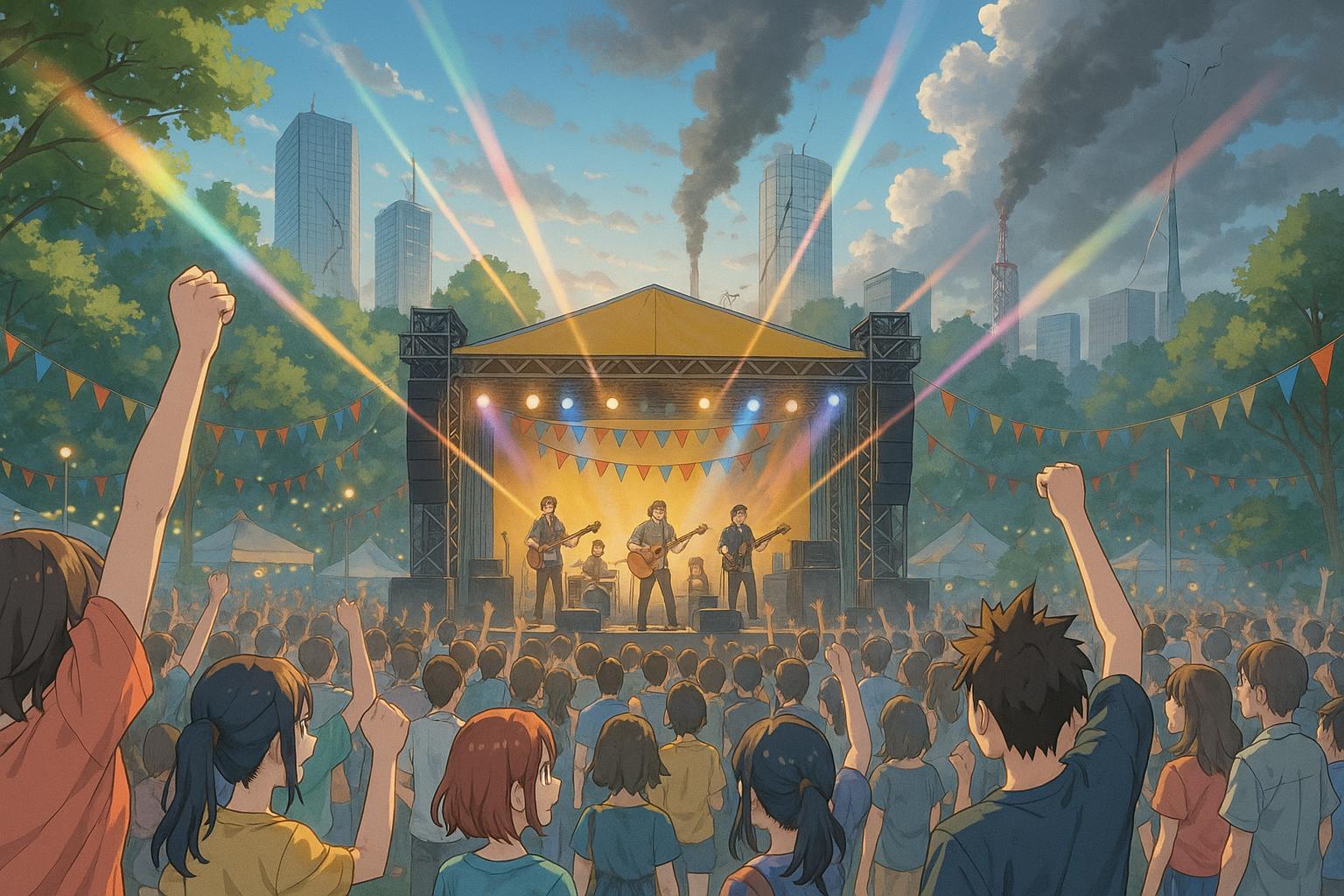Organisers of the Brockwell Live festival series, which is set to take place in Brockwell Park, South London, have announced that the events will proceed despite a recent legal victory for the local residents' group, Protect Brockwell Park (PBP). This decision, which allows for the continuation of festivities such as Wide Awake, Field Day, Cross the Tracks, City Splash, Mighty Hoopla, Brockwell Bounce, and the Lambeth Country Show, underscores the ongoing tension between event organisers, local authorities, and community advocates.
The legal challenge hinged on the assertion that Lambeth Council had acted beyond its legal authority by approving a 37-day duration for the festivals, exceeding the 28-day limit permitted for temporary use of public land without further planning permissions. The High Court ruled in favour of PBP, declaring the council’s decisions “irrational.” Despite this ruling, Brockwell Live made it clear that the events would not be cancelled. They stated, “Friday’s high court ruling dealt with a particular point of law and whether an administrative process had been carried out correctly,” indicating their intention to proceed as planned.
Lambeth Council has also sided with the festival organisers, indicating that the council is in the process of reviewing a new application for a certificate of lawfulness that would allow for 24 days of events. They echoed the viewpoint that the events would still occur while this review unfolds. However, this unresolved legal status adds an air of uncertainty to the proceedings and sets the stage for a continuing dialogue between the council, residents, and the event organisers.
The community opposition, led significantly by Rebekah Shaman and supported by notable cultural figures like Sir Mark Rylance, has raised serious concerns about the ecological impact of the festivals, arguing they have already led to noticeable damage in prior years. Residents and campaigners assert that large crowds and the infrastructure required for staging such events harm both the park’s ecosystem and its communal value. Reports of increased crime and environmental degradation during festival periods have further fueled the residents’ concerns.
Critics of the festivals argue that such large-scale events represent a worrying trend of commercial encroachment on public spaces. They contend that the environmental and social costs of hosting these festivals outweigh the claimed cultural and economic benefits. Proponents of the festivals, however, including event organisers and local businesses, maintain that they inject life into the area, boosting the local economy and fostering a sense of community among attendees. As noted by Michael Kill, chief of the Night Time Industries Association, the festivals provide vital social experiences that form part of the wider cultural fabric of London.
This ongoing dispute raises broader questions about public space stewardship and the need for more sustainable management of community resources. PBP has expressed a desire to find a middle ground that allows for community-connected events while mitigating their ecological impact. They are not against events per se, but seek a model that prioritises community involvement and environmental respect.
Meanwhile, the Field Day festival faces its own challenges, with several artists withdrawing from the lineup amid controversy linked to its parent company, KKR, which has been accused of unethical investments. This has highlighted the complicated intersection of music, politics, and social responsibility, further complicating the landscape for festivals in Brockwell Park.
As the Brockwell Live events prepare to commence, the developments surrounding them will serve not only to illuminate local issues of governance and public engagement but will also have implications for the future of large-scale public festivals in urban green spaces throughout London. The outcome of these discussions and disputes may well shape the trajectory of cultural events in public parks, making it essential for all parties to engage in a constructive dialogue for sustainable solutions.
Reference Map
- Informed paragraphs 1, 2, 3, 4
- Informed paragraphs 1, 2
- Informed paragraphs 1, 3
- Informed paragraphs 2, 3, 5
- Informed paragraphs 2, 4, 5
- Informed paragraphs 3, 5
- Informed paragraphs 4, 5
Source: Noah Wire Services
